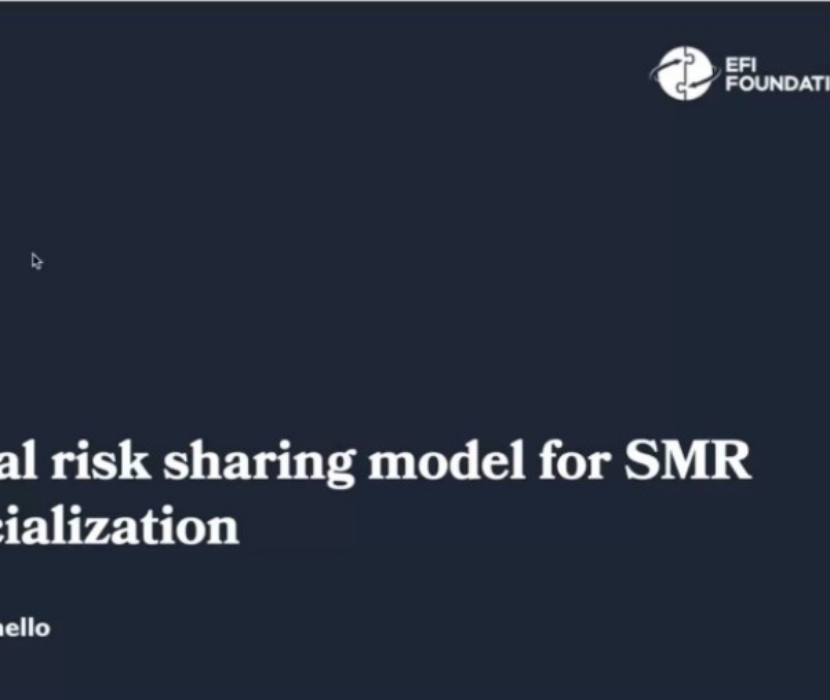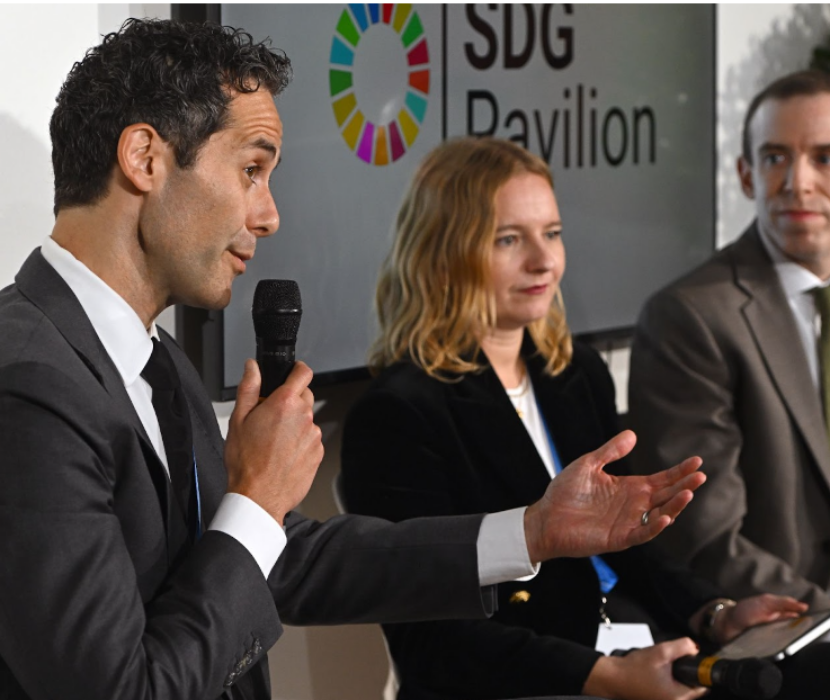
In a December 12 email interview with Jong Min Paek, a Korean reporter with Asia Business Daily, Ernest Moniz explained the roles of fossil fuels and nuclear power in the clean energy transition. He also discussed how the transition can bolster U.S.-Korea relations.
Read the full correspondence below for more insight:
Paek: Competition to cope with climate change is intensifying. Confusion continues despite the Biden government’s emphasis on responding to climate change. Can we really stop using fossil energy? Do you think carbon neutrality is possible?
Moniz: Net zero emissions is certainly difficult but possible. As climate impacts become more and more evident and damaging and costly, the public will increasingly call for stronger response — so the question is when, not if. We will see responses differentiated in time according to level of development and other factors in different countries. Negative carbon technologies (removal of legacy carbon dioxide from the atmosphere and oceans) will play an increasingly major role.
Paek: In the process of converting to clean energy, fossil fuel prices such as gasoline soar, causing the world to suffer. How can we convert energy while maintaining stable fossil fuel supply and price stability?
Moniz: Fossil fuel prices are likely to be volatile, reflecting the tension between eventually declining demand and the need to invest for future production. Oil demand for transportation is likely to decline more slowly than fossil fuel demand for other end uses.
Paek: How [should] oil companies and oil-producing countries [respond] to changes?
Moniz: Business model diversification is obviously key. In particular, the relevant skill sets of oil producers for a number of low-carbon pathways should be put to work. This will have the additional benefit of providing a degree of stability for the workforce and communities.
Paek: In Korea, the suspension of nuclear power plants has become a big issue. Korea is highly dependent on nuclear power plants, and it is not easy to generate solar or wind power. In this situation, the energy-dependent industrial structure has not changed. The government is also pushing to block coal power generation. The expansion of energy costs is expected to increase the burden on companies and individuals. How much do you think you can bear the cost burden of responding to climate change?
The societal cost of climate change will continue to grow and provide a benchmark for evaluating possible energy cost increases. Net cost needs to be minimized and distributional fairness needs to be handled through policy.
The United States has extended the life of nuclear power plants, and interest in small reactors is growing. I also read a column that you argued for expanding California aid. [Are] nuclear power plants subject to exit, not clean energy? Is clean energy compatible with nuclear power plants?
Moniz: The urgency of dealing with climate change has significantly changed the view of nuclear power, including among leading environmental groups. In particular, the large amount of existing nuclear power plants need to be supported for decades, in light of their zero-carbon operating emissions. New nuclear power will continue to be viewed less favorably by many environmental groups. What will matter is the cost of next-generation plants. If the promise of nuclear fusion is realized at a competitive cost, this will be a major game-changer.
Paek: You have expressed a favorable position on natural gas. Why do you support natural gas and nuclear power plants against the progressive camp?
Moniz: First, I do not support natural gas or any other energy source in opposition to any “camp.” The issue comes down to facts. In the U.S., most of the carbon emissions reduction has come by substituting natural gas for coal in electricity production, and the same effect would be realized in many other countries for at least a couple of decades. Further, countries such as those in sub-Saharan Africa need natural gas to support their economic development, industrialization, and quality of life.
Paek: I understand that you mentioned the need for carbon collection and green hydrogen. Please tell us why you think so and if it’s effective.
Moniz: Carbon dioxide removal at scale is essential for achieving net-zero and eventually a net-negative energy economy. Hydrogen (green, blue, pink,…) is a promising way to deliver fuel services in multiple sectors of the economy, but costs need to come down, and considerable infrastructure needs to be built.
Paek: U.S. oil exports were promoted when you were a minister. Do you think there is a possibility that the U.S. will reverse this policy due to soaring oil prices?
Moniz: The U.S. remains a major net crude oil importer. The exports are important for balancing the market for crude of different grades.
Paek: Korean companies are supplying batteries to convert electric vehicles in the U.S. How do you think the electric vehicle battery relationship between Korea and the United States will affect Korea-U.S. relations in the future and how should it develop?
Moniz: This is a major plus for the U.S.-Korea relationship, since it makes the supply chain more resilient. A good example is the LG-GM partnership, with LG establishing manufacturing capacity in the U.S., including in some states that will lose supply chain business in the transition from internal combustion engines to electric vehicles. I would welcome seeing more of the supply chain established in the U.S. as a matter of security and resilience.
Paek: You were also involved in the Iran nuclear agreement. How do you evaluate North Korea’s nuclear weapons, and how do you think the United States should deal with it? Should President Biden acknowledge North Korea’s nuclear possession?
Moniz: The DPRK’s nuclear weapons are a fact, as displayed in their several underground tests. I believe a resolution of this situation will be realized only in the context of the overall security situation in the region, including China, Japan, ROK, DPRK, and Russia, at a minimum. The nature and scale of the long-term U.S. military presence in the region will be an important factor.
(Share this post with others.)




